Did you know there’s a secret that’s quietly turning Gulf nations into solar giants? Commercial solar projects are not just about renewable energy—they're a modern gold rush!
The urgency to switch to solar in the Gulf has never been higher due to skyrocketing energy demands and falling solar costs. Is your business ready to harness the sun's power?
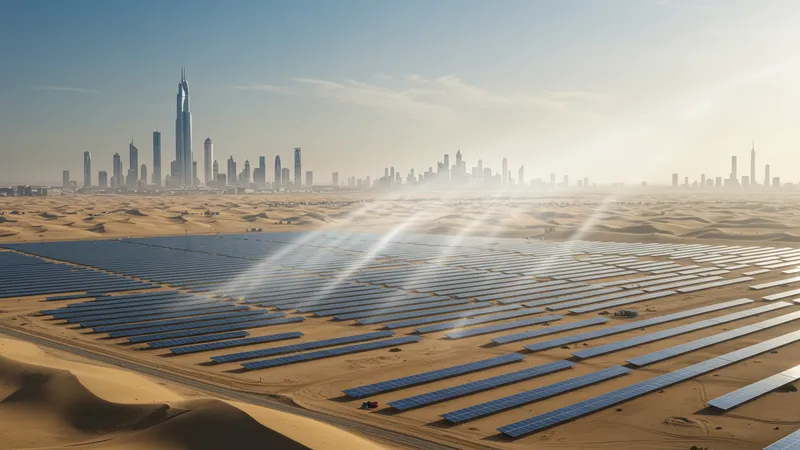
Commercial solar projects in the Gulf are booming, but not for the reasons you'd expect. It’s not just about eco-friendly energy; it’s about money—big money. Economies of scale and technological innovations are making solar a viable option even in this oil-rich region. But that's not even the wildest part...
Many are unaware that governments across the Gulf are offering unprecedented incentives and policy support to businesses eager to go solar. Picture tax breaks, reduced tariffs, and fast-track permits, all making solar not just feasible but financially irresistible. But what happens when these incentives dry up?
Stay with us as we delve deeper into the surprising elements and critical steps you need to know to start your own solar project. What happens next shocked even the experts...
Many people overlook the hidden benefits of starting a commercial solar project in the Gulf. Governments are aggressively pushing for renewable energy adoption. They are offering large tax incentives, some up to 30% deductions, making solar not just a green choice, but a financially rewarding one. But there’s one more twist…
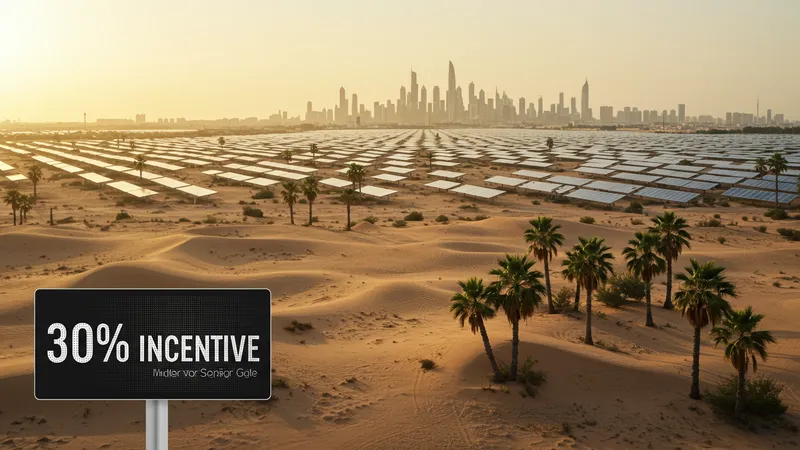
Energy independence from oil is the Gulf's surprising new mantra. Countries like the UAE are envisioning a future where solar energy reduces their reliance on oil revenues. This shift, backed by lucrative incentives, is creating a market that’s too appealing to ignore. What's even crazier is the speed at which these policies are taking effect...
Did you know solar permits in the Gulf can be approved three times faster than in the US? Thanks to streamlined governmental processes, your solar project can move from blueprint to reality in a fraction of the time. And yes, this means faster returns on investment. But what does this mean for your business strategy?
The real surprise lies in how businesses are aggressively adopting these incentives to maximize their ROI. Many experts argue that these policies will fundamentally change the economic landscape of the Gulf. What you read next might change how you see this forever.
The cost of solar technology is falling at an unprecedented rate. Advances in photovoltaic materials and increased global production have driven prices down, with some systems priced at 75% less than they were a decade ago. Here's how you can capitalize on that...
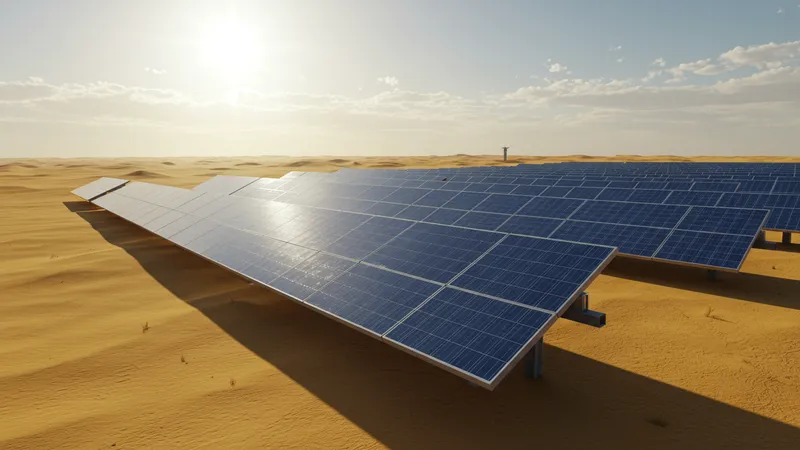
The Gulf is uniquely positioned to take advantage of these falling costs. With year-round sunlight and vast areas of flat land, solar projects have low operational costs, and more importantly, reduced installation costs compared to other regions. This makes it easier for businesses to enter the solar market now than ever before.
But what’s even more surprising is the technology leap. New solar modules are now more efficient and durable, lasting longer than previous versions. This extends the lifespan of your solar investment and boosts your long-term gains. How will this evolution affect your bottom line?
Businesses that switch to solar are often shocked by the rapid payback times. With initial costs plummeting and efficiencies rising, many projects see returns within 5–7 years, a timeframe that was unimaginable just a few years ago. The next revelation, however, could redefine how business leaders view renewable investments.
Amid the myriad options to fund commercial solar projects, solar leasing stands out as a little-known yet wildly beneficial approach. Leasing solar panels allow businesses to start with zero upfront costs while enjoying immediate savings. Could this be the secret weapon your business needs?
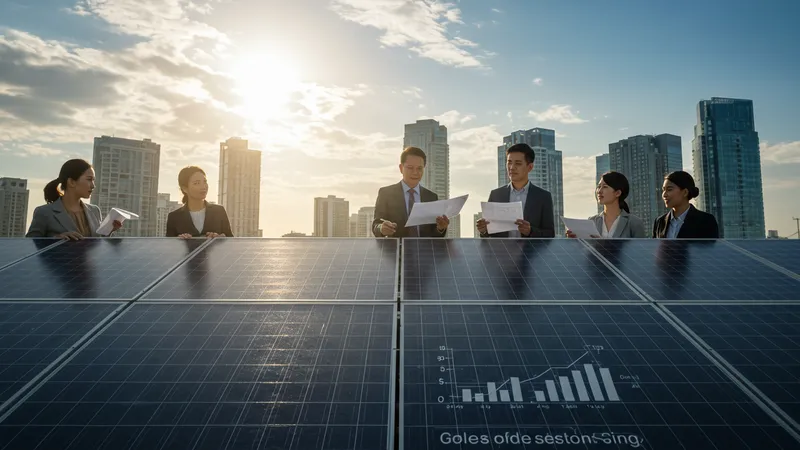
In the Gulf, where upfront capital for solar projects can deter businesses, leasing options offer a financial gateway. By paying monthly fees instead of a hefty initial outlay, companies can ease into solar usage without burdening their budgets. The perks extend beyond just financial relief. What other hidden benefits could leasing hold?
Leasing also transfers maintenance and performance liabilities to the leasing company, ensuring panels perform optimally without extra responsibility on your part. This innovative approach helps you avoid operational headaches while still reaping the savings of solar energy. What's the catch with such a seamless transition?
Despite its clear advantages, solar leasing is still underused in the Gulf. As awareness grows, more businesses are starting to consider this viable option. It's curious why such an advantageous solution isn't more widely discussed. Unravel the reasons by flipping to the next page!
In a region historically dominated by oil, the cultural acceptance of renewable energy might seem counterintuitive. Yet, the Gulf countries are experiencing a massive cultural shift towards embracing solar as a key energy solution. Curious about what's driving this? The change is more profound than you think.
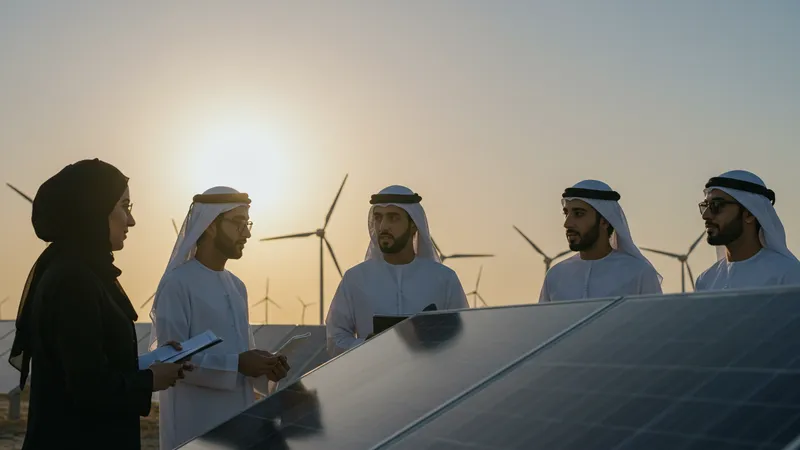
This shift is not just fueled by economics but by a growing environmental consciousness. Young Gulf citizens, increasingly aware of climate change, are pressuring governments and businesses to adopt cleaner energy. The impact of this conscious push is rippling across the entire industry.
The cultural momentum is further amplified by governmental campaigns and educational initiatives emphasizing sustainability. These efforts are turning the tide, making renewable energy a trendy and aspirational choice among younger generations. But what implications does this cultural shift hold for businesses?
Adopting solar is becoming a statement of corporate responsibility, which attracts positive public relations and customer approval. As businesses gain favor among eco-conscious consumers, those ignoring this trend might risk their reputation. Can your business afford to lag in this cultural transformation?
Despite the glowing prospects of solar in the Gulf, potential challenges can arise. Navigating local bureaucracies and securing permits can still pose significant hurdles. While the policies are generally favorable, each country has its quirks. But there’s a way businesses are cleverly overcoming these roadblocks...
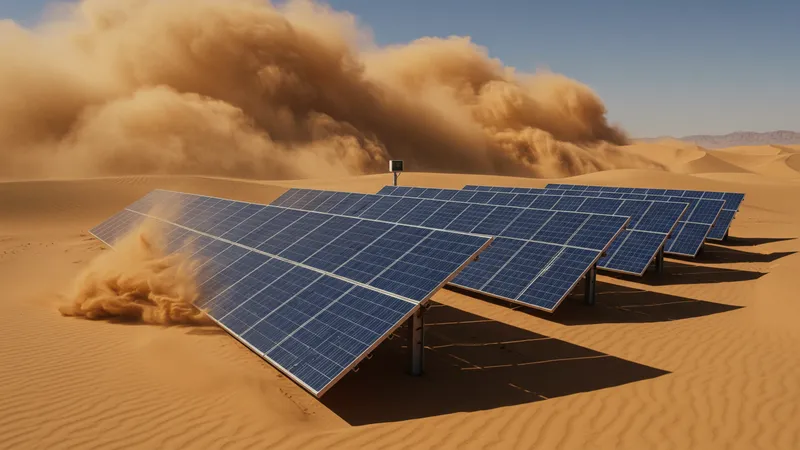
Environmental factors, such as desert sandstorms and intense heat, can also affect the efficiency and longevity of solar panels. Additional maintenance and more robust technology designs are essential to combat these challenges, but they only add to the management complexity.
The skill gap in the local workforce for operating advanced solar technology is another often overlooked barrier. Companies are increasingly investing in rigorous training programs to bridge this gap, ensuring not only the success of their projects but also contributing to skill development in the region.
While these hurdles might seem discouraging, successful businesses are finding innovative ways to turn them into opportunities. What’s the strategy behind turning obstacles into stepping stones for success? The revelations might just change your approach to project challenges.
Collaborations with international solar experts are becoming indispensable in the Gulf. Their expertise helps local companies navigate uncharted territories of solar technology and project management. Wondering how else these partnerships influence the regional solar industry?
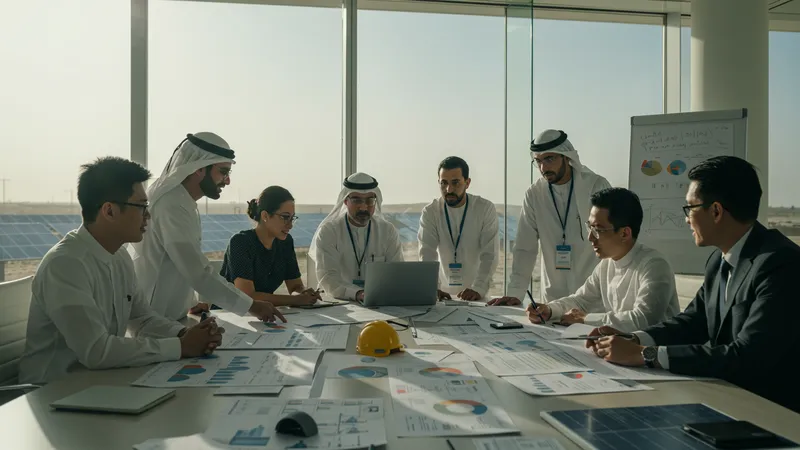
These alliances bring fresh perspectives and innovative solutions that marry international experience with local insights. This cooperation often leads to cutting-edge projects that set new standards in efficiency and scale, surprising even the most seasoned industry veterans.
Beyond the technological edge, these partnerships also provide financial backing that shares the risks and rewards of large-scale solar investments. This security can embolden local companies to dream bigger and push boundaries, thus enriching the regional market.
However, these partnerships aren't without complexities, as cross-cultural differences and varied business practices can delay project timelines. Companies must navigate these intricacies to ensure seamless collaboration. What’s the ultimate guide to mastering these international engagements?
While many believe solar installations in the Gulf are extremely labor-intensive and cumbersome, recent technological advancements have debunked these myths. With prefabricated modules and automated systems, installations are now quicker and more efficient. What other misconceptions might still be holding you back?
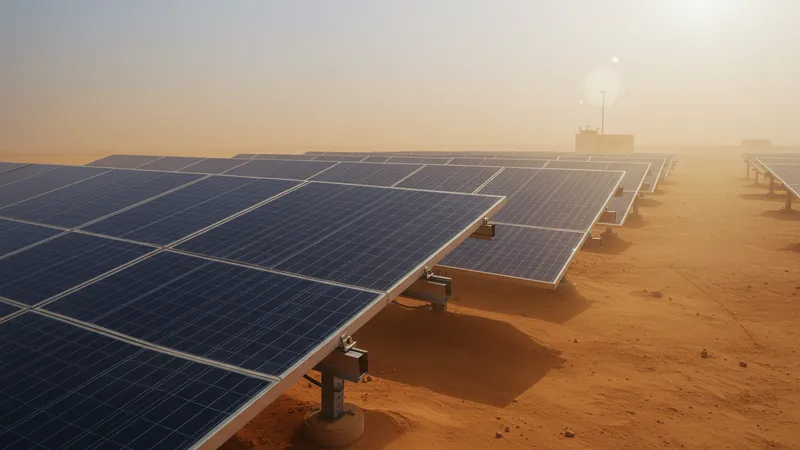
The belief that solar energy is ineffective during the harsh summer months has been proven false with the advent of heat-resistant technology. Modern solar panels are designed to thrive even under extreme heat and dust conditions, further proving their worth in the Gulf environment.
Another widespread myth is the assumption that solar panels require large amounts of land. While space is beneficial, rooftop solar initiatives and vertical installations now make it accessible for businesses with limited land availability. This versatility expands commercial solar’s reach more than ever before.
Dismantling these myths not only paves the way for informed decision-making but also opens a realm of possibilities for businesses considering solar adoption. Which myths have you believed, and what will you choose to do differently now?
The future of solar in the Gulf is brighter than many predict, with innovations on the horizon promising even greater cost efficiency and energy yields. Cutting-edge research into solar thermals and storage solutions could change the game. How soon will these advancements hit the market, and how will they redefine your strategies?
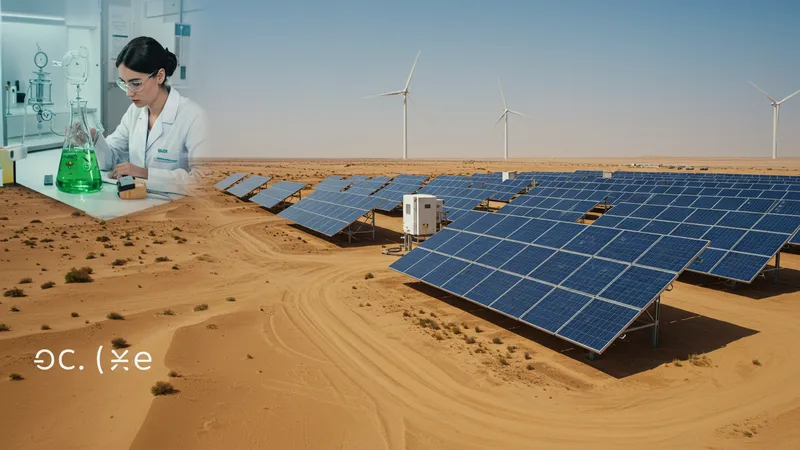
Green hydrogen, generated from solar power, is quickly becoming a focal point for research within the Gulf. As this technology develops, it could revolutionize the energy landscape, offering clean energy storage and transport solutions, intrigue swirling around its potential is burgeoning.
The push from Gulf nations to invest in solar energy isn’t just about reducing carbon footprints. As countries prepare for post-oil economies, solar is seen as a pillar of energy security and economic diversification, hinting at a seismic shift in global energy dynamics.
Experts suggest we are only scratching the surface of what solar can offer the Gulf. As the region dedicates more resources to this field, businesses will need to be agile, visionary, and innovative. How will you prepare to stake your claim in this unfolding saga?
In summary, the journey to launching a commercial solar project in the Gulf is filled with unexpected twists, promising opportunities, and a fair share of challenges. The landscape is rapidly evolving, and as it does, the businesses quick to adapt and seize the moment will reap substantial rewards.
Embarking on this path not only contributes to a more sustainable future but positions your enterprise at the forefront of an energy revolution. Feel inspired? Share this article with colleagues and industry peers, or bookmark it as a vital resource as you embark on your own solar endeavors.